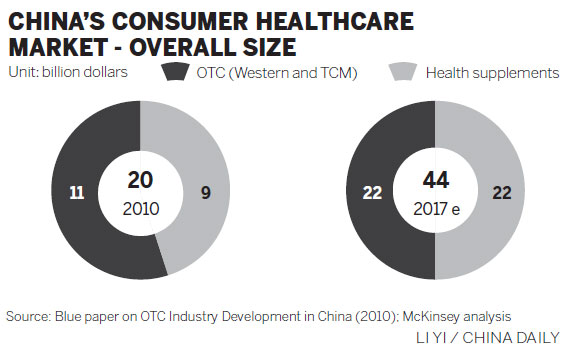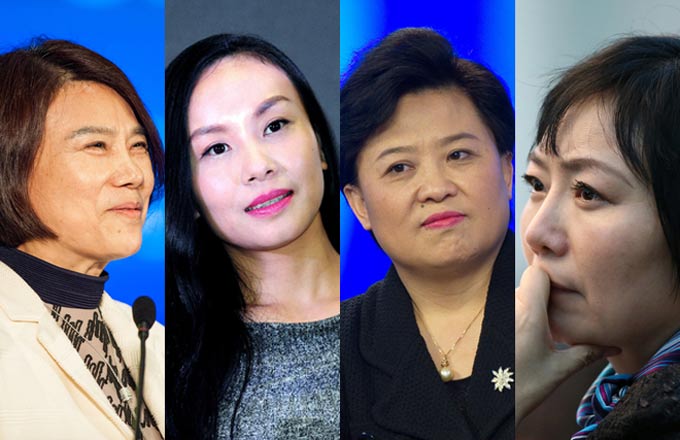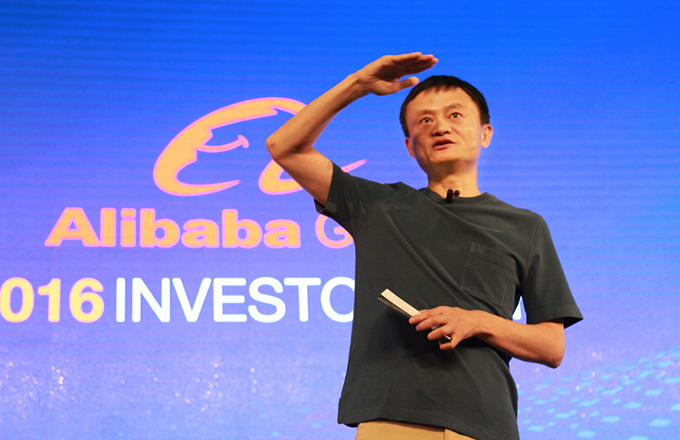Foreign interest grows in aging society
By Liu Jie (China Daily) Updated: 2013-03-30 08:10Those include "Daktarin", a medicine which is used in certain types of fungal infections, sold by Xian-Janssen Pharmaceutical Ltd, Pfizer's Caltrate, "Sidashu", a gastric medicine combing Chinese and western tecnniques produced by China's Xiuzheng Pharmaceutical Group, and Sanjiu Medical & Pharmaceutical Co Ltd's famous "999" branded products.
Liu Zhanglin highlights the success, in particular of traditional Chinese medicine company Beijing Tongrentang Group, which said last month it will open another 100 self-operated pharmacies around China and 10 stores overseas this year.
The maker of traditional Chinese medicine has more than 1,500 self-operated pharmacies in China and more than 70 in overseas markets, including the United States, the United Kingdom, Australia, Singapore and Hong Kong.
Its products include TCMs, consumer healthcare products and health food and medical cosmetics.
Half of its profit is contributed by its consumer healthcare business, which covers herbal supplements, TCM nourishment and diet products, and cosmetics. The Chinese medical company's 2012 profit is estimated at 562 million yuan.
However, Liu points out that some Chinese products still tend to be sold using overly extravagant advertising and packaging.
"The high prices of some Chinese goods also scare some consumers, while Western products are, in general, priced reasonably," said Liu.
Chinese companies are good at TCM-related products, while multinational companies are the masters of Western-styled supplements, but both presenting different challenges, he added.
China's consumer healthcare market features lower entry barriers, but can see larger variances in quality and improper sales practices as a result.
Bruce Liu said that all multinationals are having to get used to China's idiosyncrasies, but that their expertise in health products is a particular strong selling point.
One of the biggest differences being felt by multinationals, is in marketing.
Selling consumer healthcare products can be highly different to selling pharmaceutical products, especially in retail chains.
In recent years, retail pharmacies have become an increasingly important channel for the sale of consumer healthcare products and now represent 25 percent of sales.
Direct sales and modern trade channels such as hypermarkets, supermarkets and convenience stores are playing a bigger role.
To cover these new channels, drugmakers are having to invest more in branding, promotion and advertising, above and below the line, say experts.
"Many think the consumer healthcare sector provides fat profits. However, when we take marketing and advertising activities into account, profits in China are not as high as consumers think," said Liu Zhanglin.
That's maybe the reason that Pfizer has always said that to expand market share and consolidate its presence in China, to launch any new product, it has to be prepared to lose money for at least three years.
Liu said domestic and foreign players have to clearly identify their target groups.
Older Chinese people remain the typical buyers of TCM-related products, and TV and newspaper advertising remain powerful promotional tools.
For young and middle-aged people, interest in foreign-made supplements is growing, and e-commerce and supermarkets are proving the most effective channels.
liujie@chinadaily.com.cn

- China pumps 393.5b yuan liquidity into market via MLF
- Bitcoin trade plunges in China after tighter regulation
- CSIC may call timeout on equities injection plan
- Red aiming to befriend women with sharing app
- Tianjin port applies brakes to coal truck transport
- Skymoons sets out on journey to the West
- Wine retailer has many reasons to be cheerful
- Survey says more e-shoppers to buy foreign stuff by 2020


















